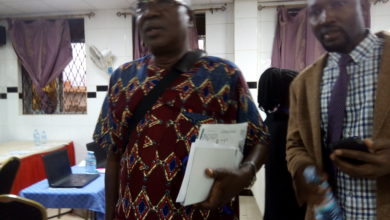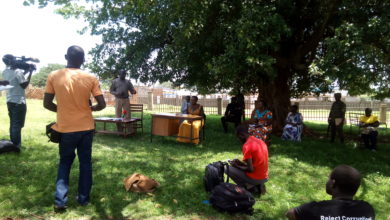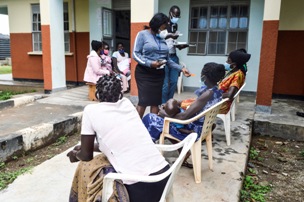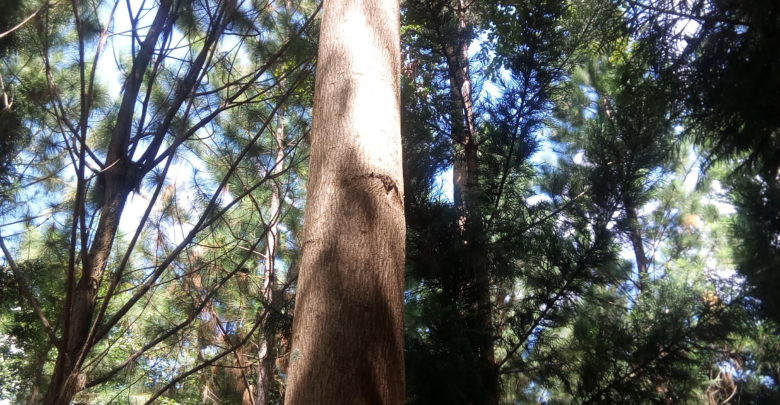
EnvironmentGlobal Politics
UGANDA: GULU TIMBER INDUSTRY IS A BIG SPIN-OFF FOR ECONOMIC INVESTMENT
Mr. Langoya Council Dickson is one of Uganda Timber Growers Association members in Gulu. He is proud to say that in three years time, Gulu City will have timber industry from his 130 hectares of trees.
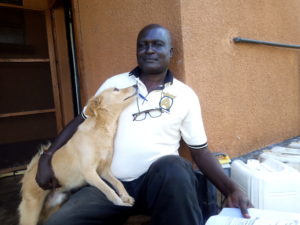
Opok Forest, the plantation privately owned by an individual is so far one of the biggest private timber source based in Omoro District.
During the just concluded conference on Northern Uganda Emerging investment Frontier, held in Gulu, agricultural experts have been debating on how to explore partnership, and identify high-growth investment opportunities that will generate economic, social and environmental returns.
GULU-UGANDA: According Mr. Langoya Dickson Council, ecotourists visitors from Europe who visit his 130 hectares forest shake their heads in wonderment.Langoya says they do not believe that this pine trees are just 11 years old. “They say in Europe because cold weather it would takes 40 years for the trees to grow to this size” said Langoya, a professional forester.
Oyengyeng News tracked Mr. Langoya, a former Commissioner of National Forestry Authority at his Opok Forest Farm for an interview.
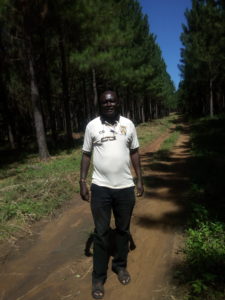
One-on-one with Mr. Langoya Dickson Council
Oyengyeng: Tell me who you are, and what motivated you to this business?
Mr. Langoya: I think forestry is in the family. My father, D. K. Langoya of Palabek Kal, Lamwo District was a trained Forest Ranger. Those were pioneer students at Nyabyeya Forestry College in Uganda.
My father retired from services in 1966, and became one of the best tobacco farmers in Palabek. Even in those days he would plant trees in his tobacco farms. I was born during Uganda’s independence in 1962.
My father used to tell us that tree planting is very good and profitable and good for environment protection. He would encourage us to plant trees and use the products for a range of domestic purposes.
By good coincidence, I studied my Bachelor degree in Forestry from Makerere University from 1985-1988. Later, I did Master of Science in Forestry and Environmental from University of Aberdeen, Scotland in 2000.
This bring me into the question why I am interested in forestry. I have learned on farm, but the main reason why I took to tree planting came in 2006. I did my planning, calculations and economic projections in 2004 and found that the project was economically viable upon my retirement from National Forestry Authority that year.
Prior to that, I was doing tree planting on a small scale. When I did my projection based on 100 hectares, I learned that investment in tree growing makes good returns on the investment. I found that 5 or 7 years, the cost of production significantly drops.
I now call investment in forestry my second pension.
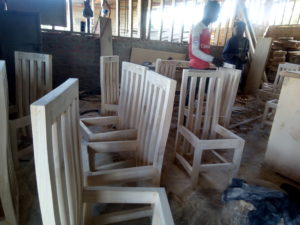
Initially, I didn’t want to start investment, but my wife and I dedicated our savings to invest in forest farming.
I discovered that investment in forestry is a big economic spin-off, but the greatest spin off is absorbing carbon dioxide which mitigates global warming.
Some people come from a distance of 10 kilometer in order to take branches off my pine trees. We don’t ask for money from them. The important things a lot of people in the community within the surrounding area have learned how to plant trees and protect them.
When they see from us what we do, when we are weeding they also begin to do weeding, when we are planting, they also do planting and when we are making fire line, they also learn from us.
Question. When did you start planting the trees and how much did you put as the capital in the forestry investment, and what returns do you expect?
Ans. We started planting mainly in 2006, it’s about 13 years, and probably we have put about UGX 350 million in the 13 years. But I must add something; UGX 100 million came as a grant from the European Union.
We have a carpentry workshop located in Pece, Gulu outskirt. We got grant for a log saw machine from the European Union.
When it comes to fire protection the community come to help me because we have given them a lot of jobs, and we have conducted lessons for them.
The question of market, to me the market is a bit of a challenge. I am mainly targeting the markets of Gulu. Amuru and Omoro districts.
Our timbers have an edge over others in the market because they are standard sizes. Ours are genuine 6 by 2 inches timbers while in the market you can find 5 by 2 inches being traded in as a 6 by 2 inches timbers. If 12 inches timber is reduced to 10 inches that is illegal. The market is flooded with timbers from young trees which is also bad.
Our plan is to make sure that we get the right age of trees and make sure that we cut the right length. We expect to use machine which are reliable, so that we promote quality products.
v

